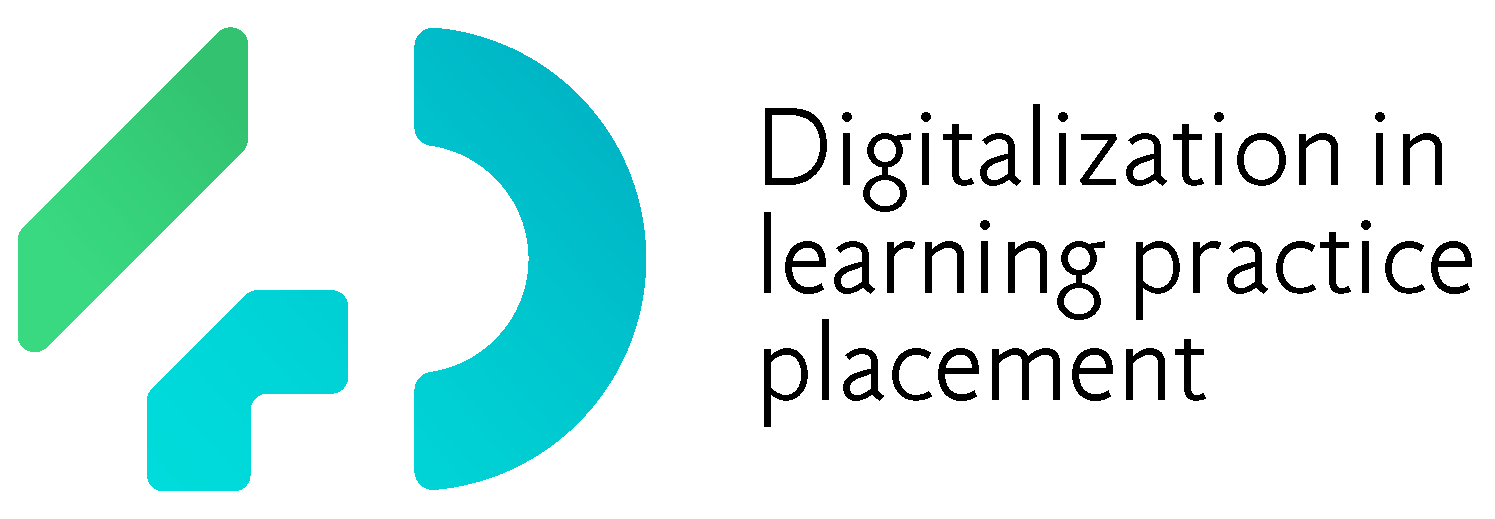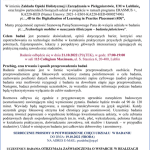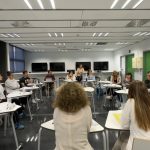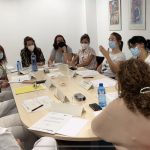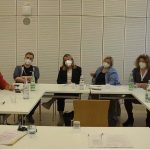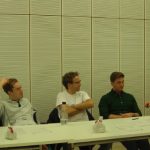🎉 Attention! 🎉
🌟 In the context of the Work Package 2, Developing and orchestrating the bases of the knowledge framework of the 4D project six focus groups were conducted to analyse the barriers, facilitators and needs to introduce mobile technology into practice placement. The focus of the Focus Groups were to understand and select the key factors from the perspective of the various actors that influence the learning in practice placements and the introduction of technology in practice placements needed to be accounted for in any digitalisation initiative
🌱 In each participating country (Poland, Spain and Germany), two focus groups were conducted to be held with 8-10 participants each one, following the next distribution:
- Three Student’s Focus Group with nursing, physiotherapist, midwife and doctor students.
- Three Stakeholder’s Focus Group with clinical mentors, link teachers, practical training coordinators, hospital ward managers, staff and other stakeholders.
– The focus groups in the Medical University of Lublin (Poland) were conducted on October 24th and 27th and coordinated by Dra. Beata Dobrowolska and led by Mrs. Magdalena Dziurka, Mrs. Patrycja Ozdoba and Mrs. Monika Gesek (see invitation picture 1).
– In Spain, the Student’s Focus Group was conducted in TecnoCampus, Pompeu Fabra University on October 24th led by Dr. Ariadna Huertas and Mrs. Cristina Casanovas and the Stakeholder’s Focus Group was conducted in Germans Trias i Pujol University Hospital on October 27th led by Dr. Esther Cabrera and Dr. Carlos Martínez-Gaitero; (see picture 2 and 3).
– The focus groups in the Faculty of Medicine of the University of Duisburg-Essen (Germany) were conducted on November 10th and 23rd and led by Dr. Stephanie Herbstreit, Dr. Cynthia Szalai and Daniela Mäker; (see picture 4 and 5).
A total 56 participants were involved in six focus groups, where 10 nursing students, 4 physiotherapist students, 4 midwife students, 7 doctor students, 7 clinical mentors, 4 link teachers, 10 practical training coordinators, 3 hospital ward managers, 7 staff and other stakeholders.
UDE Germany:
- Stakeholders (n=8): 2 clinical mentors, 2 link teachers, 1 practical training coordinator, 3 staff and other stakeholders.
- Students (n=5): 5 doctor students,
MUL Poland:
- Stakeholders (n=6): 2 persons held position of nursing managers (ward nurse), 3 held position of clinical mentors, 2 held position of practical training coordinator, 5 held position of departmental coordinator of practical training. In some cases one person held several positions. 2 persons represented nursing, 1 represented physiotherapy, 1 represented medicine, 2 represented midwifery.
- Students (n=10): 2 physiotherapy students, 2 nursing students, 2 medical students and 4 midwifery students
TecnoCampus:
- Stakeholders (n=11): 2 clinical mentors, 2 link teachers, 2 practical training coordinator, 1 Hospital ward manager, 4 Staff and other stakeholders.
- Students (n=10): 2 physiotherapy students, 8 nursing students.
- Picture #1 Call for Action or Participation. Medical University of Lublin, Poland.
- Picture#2 Focus Group at TecnoCampus Mataró, Spain.
- Picture#3 Focus Group at IGTP Badalona, Spain.
- Picture#4 Focus Group at University of Duisburg-Essen, Germany.
- Picture#5 Focus Group at University of Duisburg-Essen, Germany.
